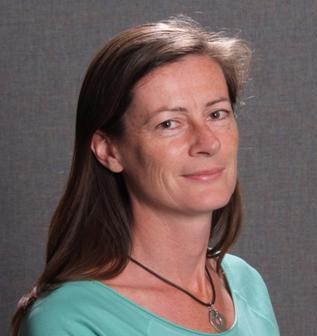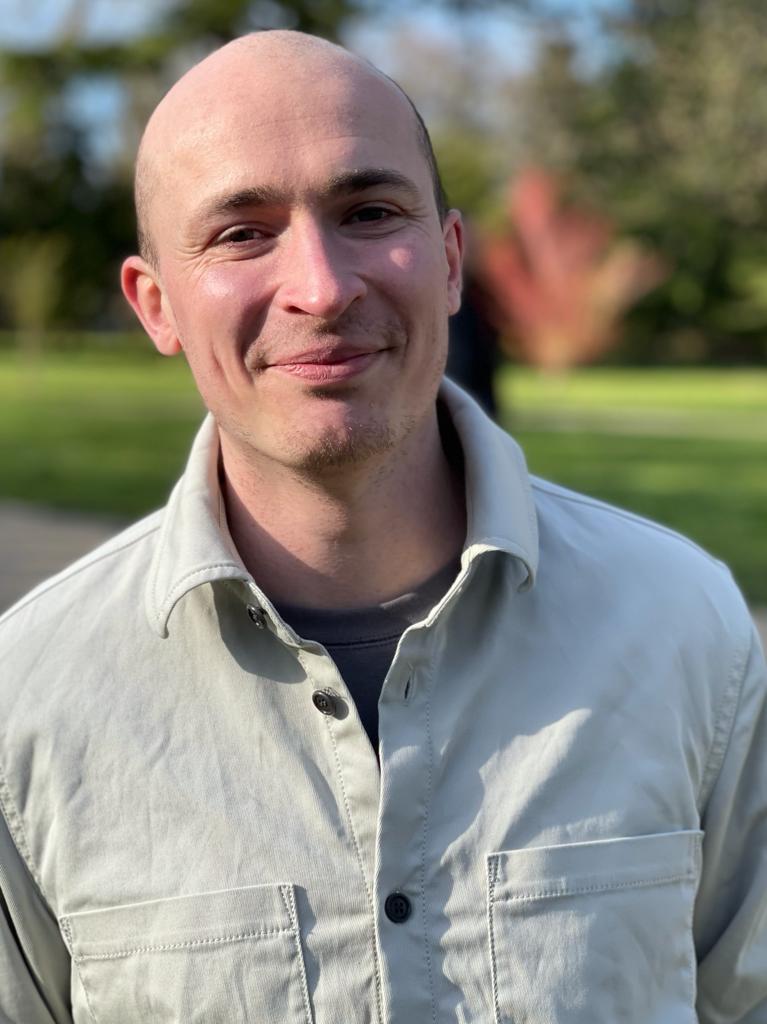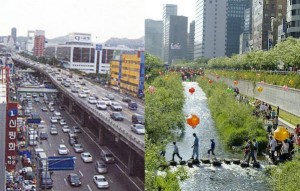In Bristol’s European Green Capital year, the University of Bristol and its Cabot Institute have been working with the Bristol Green Capital Partnership and its members to convene a series of four conversations between Bristol academics and city ‘thinkers’ from across public, private and civil society exploring how Bristol delivers the ‘future city’ – what capacities it needs to be resilient, sustainable and successful and how it can start to develop these in times of changing governance and tightened finances. The conversations will be reflected in a series of four blogs (the fourth below) and then brought together as a policy report as well as discussing at the Festival of the Future City in November. You can connect to the other blogs from this series at the bottom of this blog.
—————————————-
 |
| Wordle of what we thought we’d talk about… |
Cities such as Bristol are increasingly prominent in national growth strategies. The economic growth that Bristol helps to drive plays a fundamental role in shaping many aspects of life within the city. Different sectors, areas and social groups participate in and feel the impacts of growth in different ways. For some, the need for growth is unquestionable, particularly in an era of austerity, with the assumption that growth somehow underpins the pursuit of all other objectives. But for others, the pre-eminent growth logic is divisive socially and unsustainable environmentally. Growth therefore needs to be at least managed and possibly challenged more fundamentally. In this fourth conversation we considered what economic models make sense for the city and what capacity the city has to make changes in the context of a national and international economic system.
Growth – the elephant in the room?
In considering the future economy of the city, growth is the dominant idea but does this have to be economic growth with the associated ongoing increase of resource consumption? As we saw when discussing austerity, GDP growth is not contributing to long term stability environmentally or societally. This debate was an opportunity to further explore growth and other measures of prosperity and how much is within the city’s control.
One participant drew an analogy with the natural environment and the way that living organisms are born, develop, mature and die – there isn’t enough space for everything to grow indefinitely. If we only talk about growth then we are only talking about half of life and missing the bit where some things die in order to make space to develop and nurture other life or something new.
There are two big reasons for needing growth, one is to service (interest bearing) debt – to pay back more than was borrowed needs growth. The second reason that growth is the mantra, particularly internationally, is that if a population is growing, you need economic growth otherwise by definition living standards are declining – and population growth is something else that is difficult to talk about. There is a common perception of growth as meaning success, an investment for your children.
What are the alternatives and how to we get to something that is more about leading happier, more fulfilled, healthier lives, something about development rather than growth?
International vs. local
One of the problems is that we are part of a global system, but there are things that a city controls and can change. The more business that is done locally or regionally, the more that power and funds move away from big corporations to something more transparent and locally based, where the organisations have a direct interest in the populations that they serve.
If the current systems seem too embedded and talk of developing alternative frames and narratives too difficult to achieve then don’t talk, just do things differently. The idea of ‘everyday making’ is that individuals just start behaving differently day-to-day, it has a cumulative effect and the end product is change. It’s an idea in academic literatures but it can be seen in real life too. Examples include buying food from local suppliers, ethically sourced clothing, and saving in green investment funds. In Bristol, the Bristol Pound is a manifestation of this idea – that by having a local currency people can gradually make more conscious consumption decisions. The new ‘Real Economy’ network has been developed through the Bristol Pound in an attempt to challenge the dominance of big business supermarkets. In the Real Economy, buying groups source food from local producers to start to create a food system that is fairer to all.
Talking about economics
Another issue is that many people feel disempowered when there is talk of economics, they feel that they don’t know enough, that somehow only the experts understand and can manage the system. It’s not really a conversation for the pub or at the school gates and that plays into the hands of the vested interests. The dominant free market right have captured the narrative with the idea that only growth can support ‘hard working families’.
There is such a dominance of growth as being the necessary outcome that it’s easy to portray everyone outside as excluded or naïve. In this narrative, growth translates as success and anything else is irresponsible.
Is it really a free market?
Could a true free market take account of climate change and value natural capital and social capital? These issues are not even really in the (mainstream) discussion yet whilst government subsidies support some industries and don’t let them die or change when they should. For example, banking; or the petroleum industry, which perhaps should be dying because of its costs – even before taking into account the environmental cost. Subsidies skew these markets.
There’s also a simplistic perception that everybody who is in the private sector (or at least the big business, multi-national part of it) must be bad but there are many entrepreneurs who act ethically and responsibly, who want to create good (local) businesses that employ people on fair wages and give back to their communities.
Part of the problem is that we’re all part of a very complex, interdependent system. This interdependency allows risk to be shared. For example if a city loses core industries, employment and income, shared resources from central government are there to help out. These interdependencies are highly complex which is why cities and businesses are not allowed to fail – for now at least, we’re all tied together in a global monetary system.
Politics, power and change
Our current political system draws some of its power from big business, paying taxes and providing employment, but also with the power to lobby to maintain the status quo. The powers in the system not only prevent things from dying but prevent change too and, although of course we need employment and tax receipts, there needs to be a mechanism whereby changes can happen more quickly. At a personal level, change is uncomfortable, so people vote for what is familiar, even if they don’t really like it, because it feels safer. It was suggested that the neo-liberal movement has succeeded in making all of us resistant to change. It’s scary, change takes us into the unknown and that feels risky, especially when we’re feeling vulnerable.
The constant growth narrative feels to some like a form of oppression. Individuals feel disempowered and that no-one else feels like they do, that they are all alone in being the good guy, all alone in arguing against the current system and narrative. There are many groups and conversations reflecting this view but they are fragmented and weak against the established power structures. Can a city bring its dissenting voices together into a more powerful collective? What is within its power to change?
 |
| …Wordle of what we talked about during the debate. |
New approaches
This conversation started feeling a bit gloomy, that all the wrong people have the power, that we’re all alone in trying to make changes, that anyway we’re a bit powerless in such a globalised system and that the two big reasons for needing growth seemed unarguable.
A few good examples from around the world got us thinking about what could be done at the scale of Bristol. The examples from elsewhere included Ecuador which has legislation for the rights for nature, Sweden is experimenting with six-hour working days and Bhutan has a measure for gross national happiness. What could be the different ways of measuring economic welfare in the city – and which are not trying to put a monetary value on non-monetary issues such as quality of life or care for the natural environment?
The shift from growth to development or other forms of prosperity could involve a major change in how we see the economy and what we want from it. Rather than seeing growth as the end in itself, the economy should be seen as a means to achieve different development goals such as better public services, improved housing, increased inclusion, reduced inequality and greater levels of sustainability. This would take a cultural and structural shift – overcoming the vested interests in maintaining the status quo.
What about Bristol?
There are already many parts of Bristol that are taking on big business and creating their own alternative economies with flourishing local enterprises and community-led prosperity coming out of them. The people of Bedminster are fighting against supermarkets and pawn shops, Knowle West are looking at pop up manufacturing and 3D printing, Lawrence Weston and Southmead have great momentum and visions for the future. Neighbourhood partnerships are working really well in some of the areas that need them most, and there are great social enterprises in many areas. BUT, there is still the dark side and, unlike some parts of the North, people across the city don’t feel like they’re all in it together, more like ‘us and them’. As we have observed before in these debates, there is significant racial tension and inequality in the city, high levels of child poverty and differences in life expectancy of 10 years between different areas – and, even more shocking, a 20 year difference in healthy years lived.
With these problems in the city it feels really important that we make efforts to work together better, to learn from the good examples and to join up this conversation outside the university and across the city. The big organisations in the city, such as the health sector, universities, council and businesses, have an important civic role in contributing to the wellbeing of the city. They have the resources and potential in their workforces, customers and supply chains to create new partnerships and city-wide change.
A new economic future?
When we talk about the allocation of limited resources there is no shared theory of value and no broader plan against which to share resources. So, for example in the health service, the budgets are boundaried and it’s easier to measure success of spending on cardiac surgery than it is to allocate resources to preventing heart disease with less predictable results somewhere in the future (that short-termism again). People across organisations collaborate in multi-agency partnerships but much of the actual resource allocation comes back to core service delivery. We need to understand where the power lies that can unlock these behaviours and allow longer term decisions to be made.
Again in this debate we talked about reducing inequality and creating a fairer system. The aim of the Bristol Pound was to support a green and fair economy – more equality and a more sustainable way of using resources. There is a wider role for business in contributing to life in the city, to have a positive impact. Local businesses and social enterprises are more connected with their communities and larger organisations have a civic role.
In the future we need to think more about what the economy is for – how to help pay for public services and improve housing, increased inclusion and greater levels of sustainability. We need to understand how to measure the real cost of environmental damage and that growth in itself is not the aim.
And sometimes we just need to do it, to make changes locally, to work together and to act on our beliefs in a way that supports the new economic system that we want to see.
———————————





















